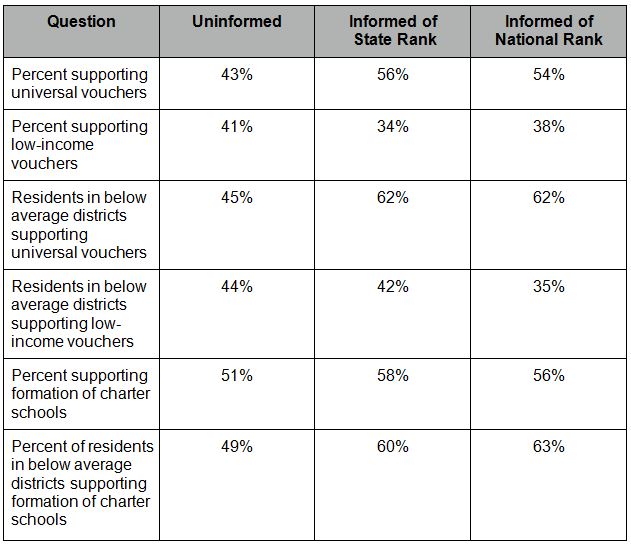 A new survey from Education Next suggests conservatives interested in expanding school choice may be shooting themselves in the foot by opposing Common Core.
A new survey from Education Next suggests conservatives interested in expanding school choice may be shooting themselves in the foot by opposing Common Core.
The reason? According to the survey results, Americans become more favorable to school choice (and other education reforms) when they are better informed about the relative achievement of students at local schools.
Released Tuesday, the survey by researchers Michael B. Henderson, William G. Howell and Paul E. Peterson divides respondents into two groups – the informed and the uninformed. It then asks questions related to how the public feels about local schools, teachers, teacher unions, standardized testing and school choice. Informed responders were made aware, by the authors, of how well local students performed relative to their peers statewide or nationally.
Consistent with other surveys, the public held fairly high opinions of their local schools but low opinions of all other schools. Opinions of local school performance fell when the public was made aware of local student achievement. Informed Americans did not change their already favorable opinion on testing and standards in general, but did have an increased preference for high-stakes testing tied to third-grade promotion and high school graduation.
In regards to school choice, Americans actually become less supportive of “targeted vouchers” (vouchers for low-income students) and more supportive of “universal vouchers” (voucher for all) when informed of relative student achievement. Residents living in below-average school districts were significantly more supportive of universal vouchers.
With more information about how local students perform relative to their peers, Americans do appear to become more supportive of school choice and other policies supported by the education reform community. It is entirely possible that Common Core could make Americans more informed about student achievement. As the authors’ note, “there is a certain irony in the fact that CCSS’s opponents favor many of the reforms that seem primed for winning greater public approval should the standards be fully implemented.”
However, not all opponents of Common Core are in the ed reform camp. I don’t expect the teacher unions and their supporters to jump with excitement at this survey’s findings. Read the full survey here.



